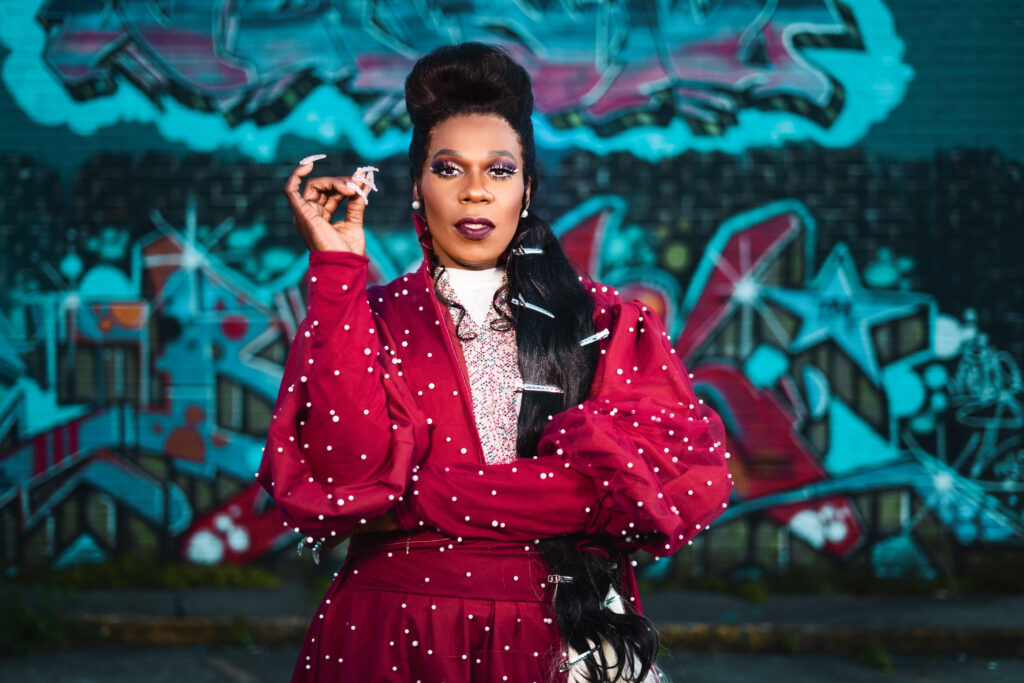Black Public Media launches gender affirming doc series
Black Public Media (BPM) is going beyond the gender binary and weighing in on the pronoun debate with a short film series — part of its latest BE HEARD! social media campaign, which tackles pressing social issues.
The Harlem-based national media arts nonprofit dedicated to creating and producing media content about the Black experience has commissioned Feral Films and Sophia Clark (they/them) to direct I Am Who I Say I Am, a three-part series of micro documentaries with feel-good stories of gender affirmation. Films are being released biweekly on Thursdays, after the first film was released on October 6 during LGBT History Month as a lead up to Transgender Awareness Week (November 13-19).
Black Public Media has partnered with social media influencers and celebrities Big Freedia, Eva Reign and the Rev. Dr. Jacqui Lewis to support the series.
The micro documentaries include: How to Learn Someone’s Pronouns, released on October 6, which introduces Janelle “Jei” Lawrence (they/them), a multidisciplinary artist and educator who discusses the use of gender-affirming pronouns in a work setting; Discussing Gender Identity with Family, releasing October 20, which sees Sharon Kidd-Fryer (she/her) and Brit Fryer (he/him), a mother and son, explore familial acceptance; and Why Your Patient’s Pronouns are Important, releasing November 3, which brings viewers into the world of Dr. Maya Thompson (she/they), a pediatric dentist discussing gender as a part of holistic care. These films are available on Black Public Media’s YouTube, Instagram, Facebook and Twitter pages, with additional resources on gender affirmation available on their website.
“With Black transgender and nonbinary people facing marginalization at alarming rates, it is crucial that we view these issues through a Black lens,” said BPM Executive Director Leslie Fields-Cruz (she/her), who is also the parent of a nonbinary child. “With I Am Who I Say I Am we aim to help kickstart conversations that can lead to all members of our community being afforded their full humanity, beginning with gender affirmation.”
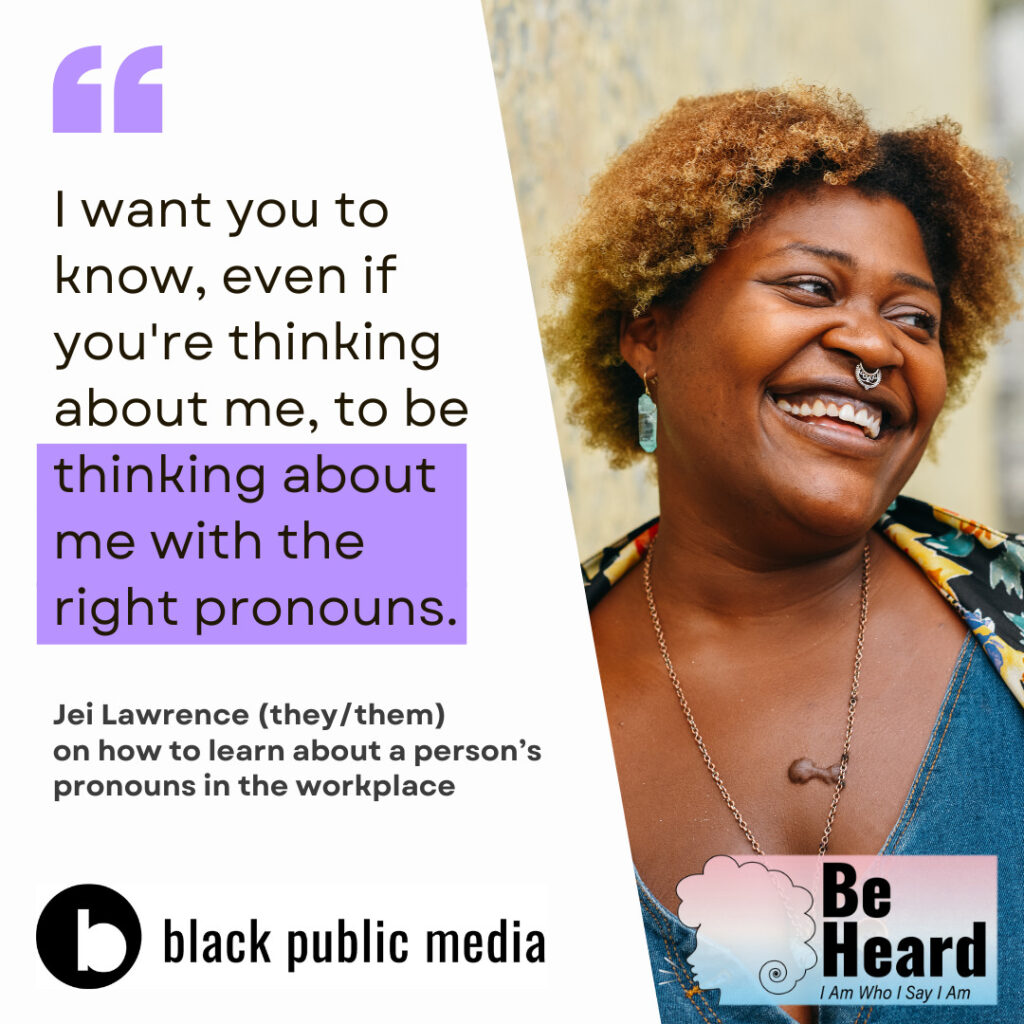
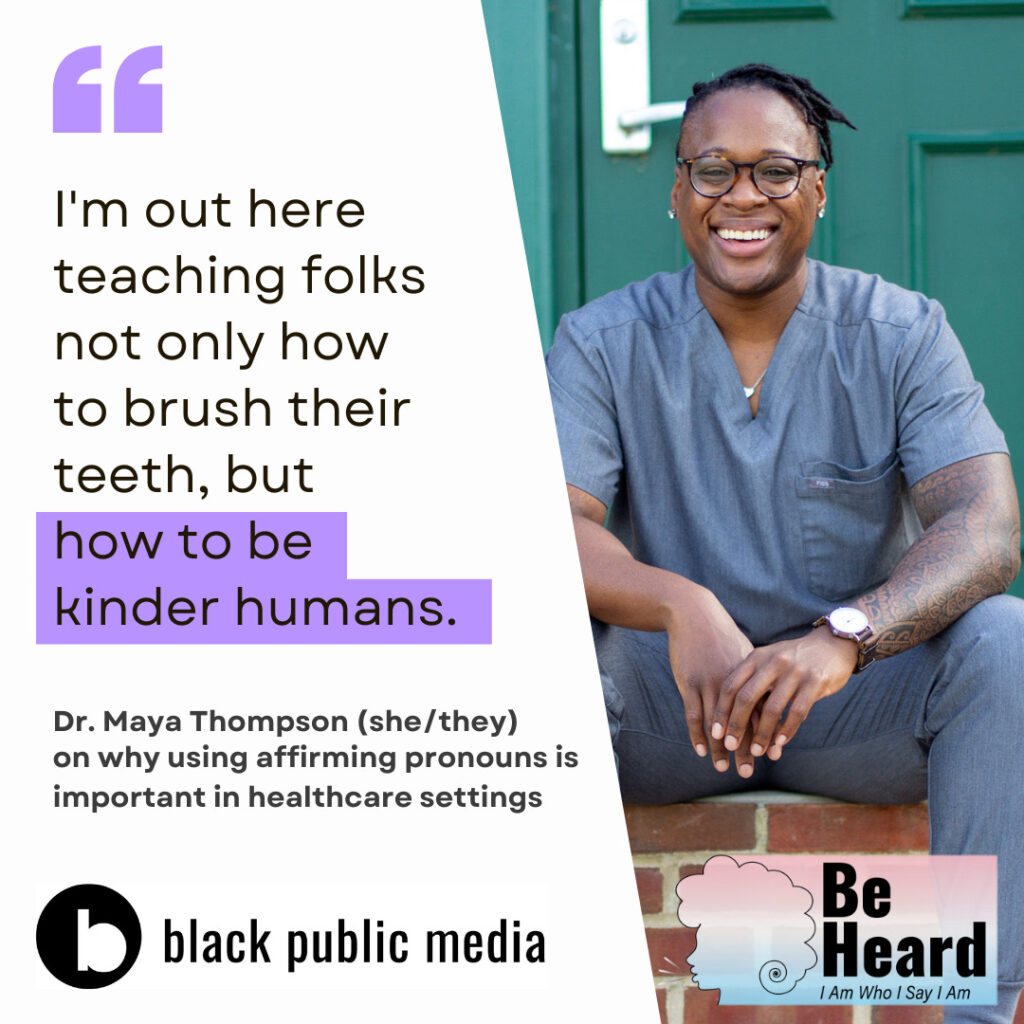
The effort comes as many Americans are having difficulty navigating the use of pronouns and as transgender people continue to face discrimination, demagoguery and violence, with Black transgender people bearing the brunt of it. Findings by the Pew Research Center show that 73% of Americans know someone who uses gender neutral pronouns, yet only 47% of Americans feel comfortable using them. At 26%, Black transgender unemployment is twice that of other transgender people and four times that of the general population. Plus, bills have been introduced in state legislatures across the country to curtail transgender rights.
“I Am Who I Say I Am aims to begin the process of changing hearts by first changing our habits, based on the fundamental belief that most people want to embrace and understand others, their differences and their potential to contribute to the greater good,” said Clark, the film series’ director. “By showing the nuance in everyday experiences, these films are for anyone striving to open their mind beyond the binary.”
I Am Who I Say I Am is an extension of BPM’s work on LGBTQIA+ issues, including the inclusion of Luchina Fisher’s documentary on transgender pioneer Gloria Allen, Mama Gloria, in Season 13 (2021) of its AfroPoP: The Ultimate Cultural Exchange series, and its work to support LGBT filmmakers. Executive produced by BPM’s Director of Programs Denise A. Greene, the campaign was assisted by an advisory panel, which included Dr. Aymar Jean Christian of Open Television; filmmaker Carrie Hawks and writer, PBS digital series host and actor Kirya Traber.
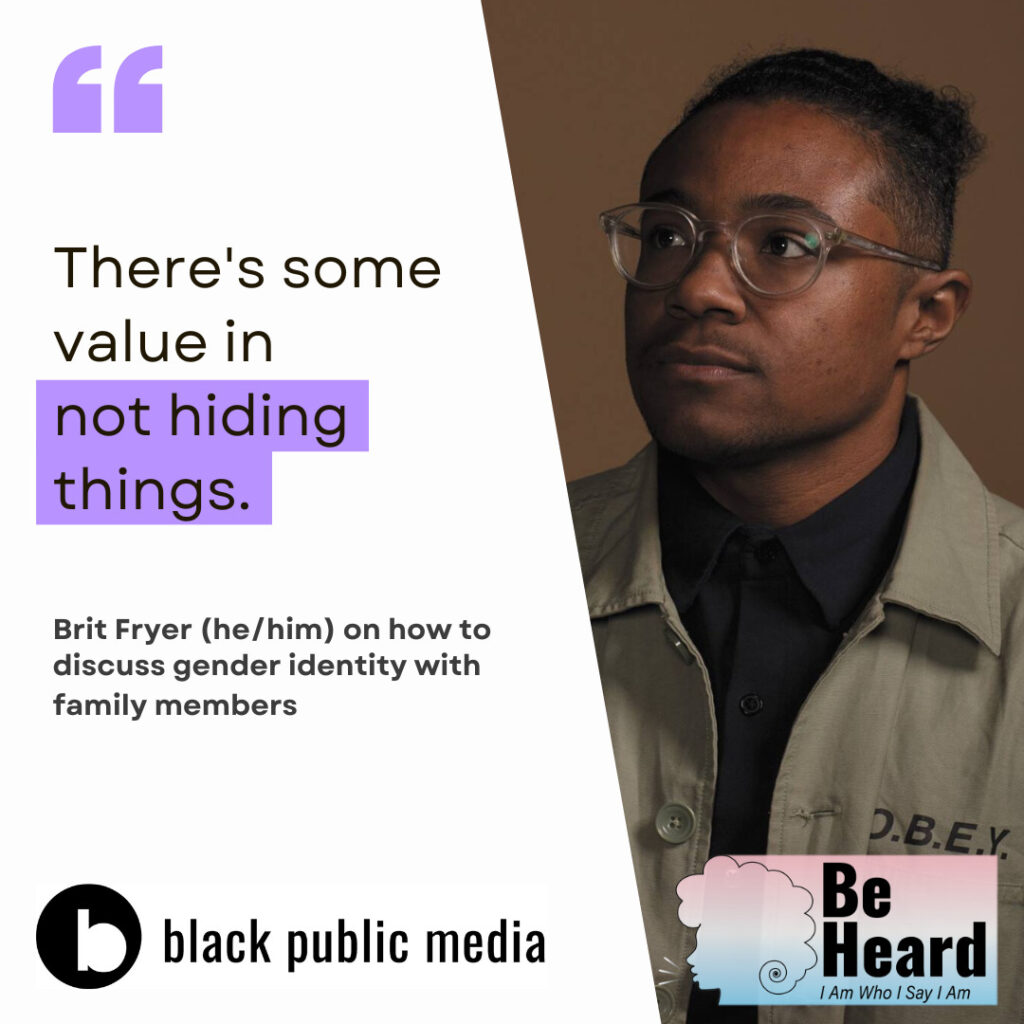
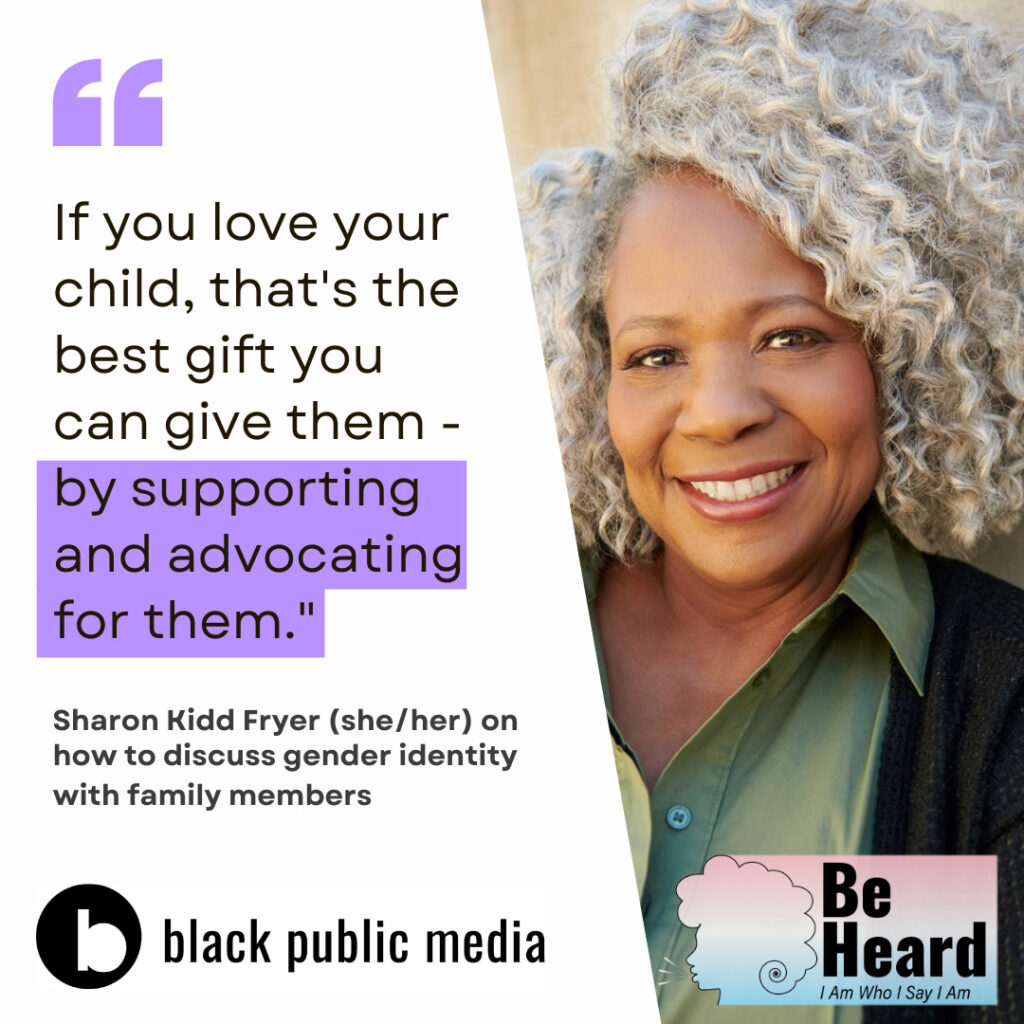
BPM first launched BeHEARD! in 2020 ahead of the presidential election. Featuring actors Erika Alexander, Gabourey Sidibe, musician Big Freedia, writer Roxane Gay, comedian Brian Babylon, political commentators Jehmu Greene and Shermichael Singleton and legislator Nina Turner, the campaign stressed the importance of the Black vote.
Be HEARD! is made possible by the generous support of the Corporation for Public Broadcasting.
To find out more about BPM, visit www.blackpublicmedia.org and follow them on YouTube, Facebook, Instagram, and Twitter.

